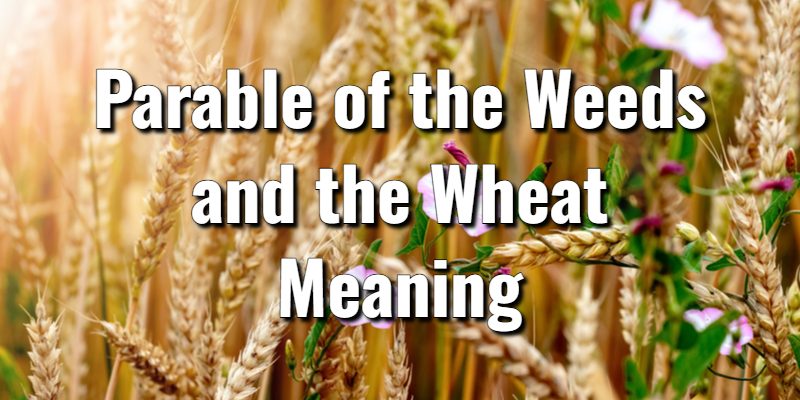As the wheat and weeds grew together, the servants of the landowner noticed the presence of weeds and asked if they should remove them. The landowner advised them to let both the wheat and the weeds grow together until the harvest to avoid damaging the wheat during the weeding process. The parable concludes with the instruction that at the harvest time, the reapers should first gather the weeds and bind them in bundles to be burned, and then gather the wheat into the landowner’s barn.This parable uses the analogy of a field of wheat and weeds to convey a lesson about the coexistence of good and evil until the final judgment. In this parable, Jesus describes a man who sowed good wheat seeds in his field. However, while everyone was asleep, an enemy came and sowed weeds, or tares, among the wheat.
The field represents the world, and the man who sowed the good seed is Jesus, the Son of Man. The good wheat represents the children of the Kingdom of God, while the weeds symbolize the sons of the evil one, sown by the enemy, who is the devil. The coexistence of the wheat and weeds in the world reflects the presence of both believers and unbelievers, the righteous and the wicked, living together until the final judgment.
Parable of the Weeds and the Wheat Meaning
The Parable of the Weeds and the Wheat meaning can be found in Matthew 13:24-30:
Matthew 13:24-30
“Another parable put he forth unto them, saying, The kingdom of heaven is likened unto a man which sowed good seed in his field: But while men slept, his enemy came and sowed tares among the wheat, and went his way. But when the blade was sprung up, and brought forth fruit, then appeared the tares also. So the servants of the householder came and said unto him, Sir, didst not thou sow good seed in thy field? from whence then hath it tares? He said unto them, An enemy hath done this. The servants said unto him, Wilt thou then that we go and gather them up? But he said, Nay; lest while ye gather up the tares, ye root up also the wheat with them. Let both grow together until the harvest: and in the time of harvest I will say to the reapers, Gather ye together first the tares, and bind them in bundles to burn them: but gather the wheat into my barn.”
Lord's Library participates in affiliate programs. We may make a small commission from products purchased through this resource.
- What Does the Bible Say About Discernment? With Key Scriptures - July 19, 2024
- What Does the Bible Say About Disobedience? With Key Scriptures - July 19, 2024
- 1 Timothy 1:12 Meaning: Commentary on an Important Scripture - July 11, 2024














